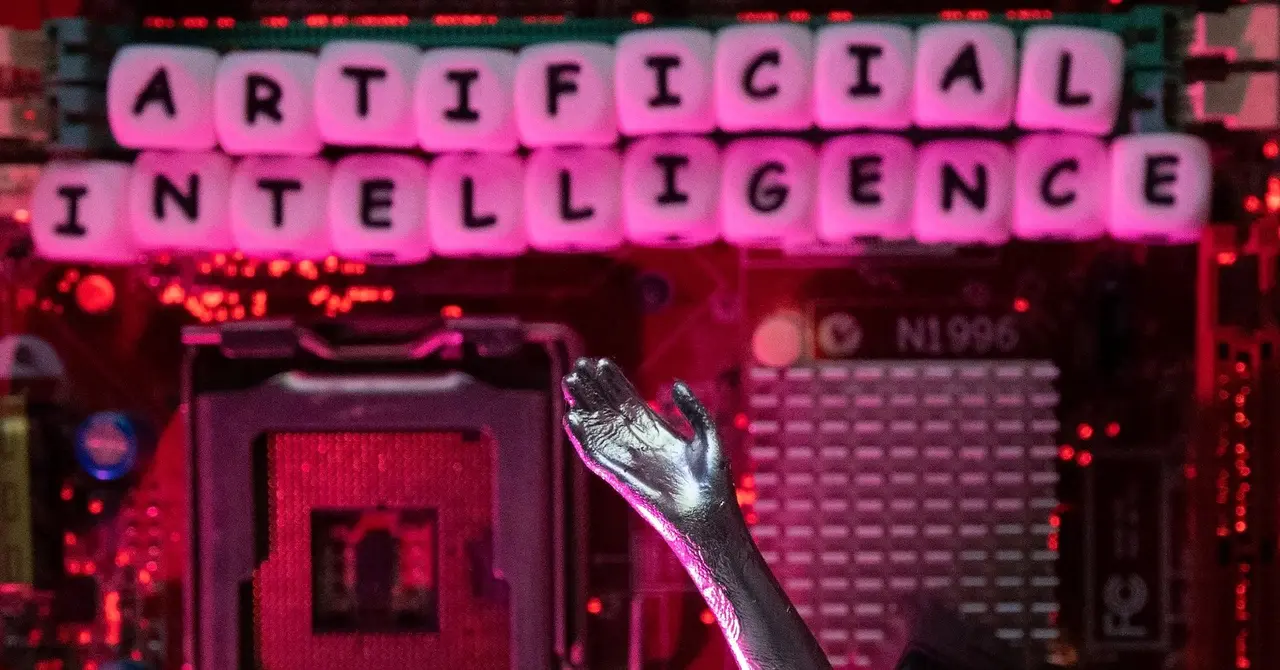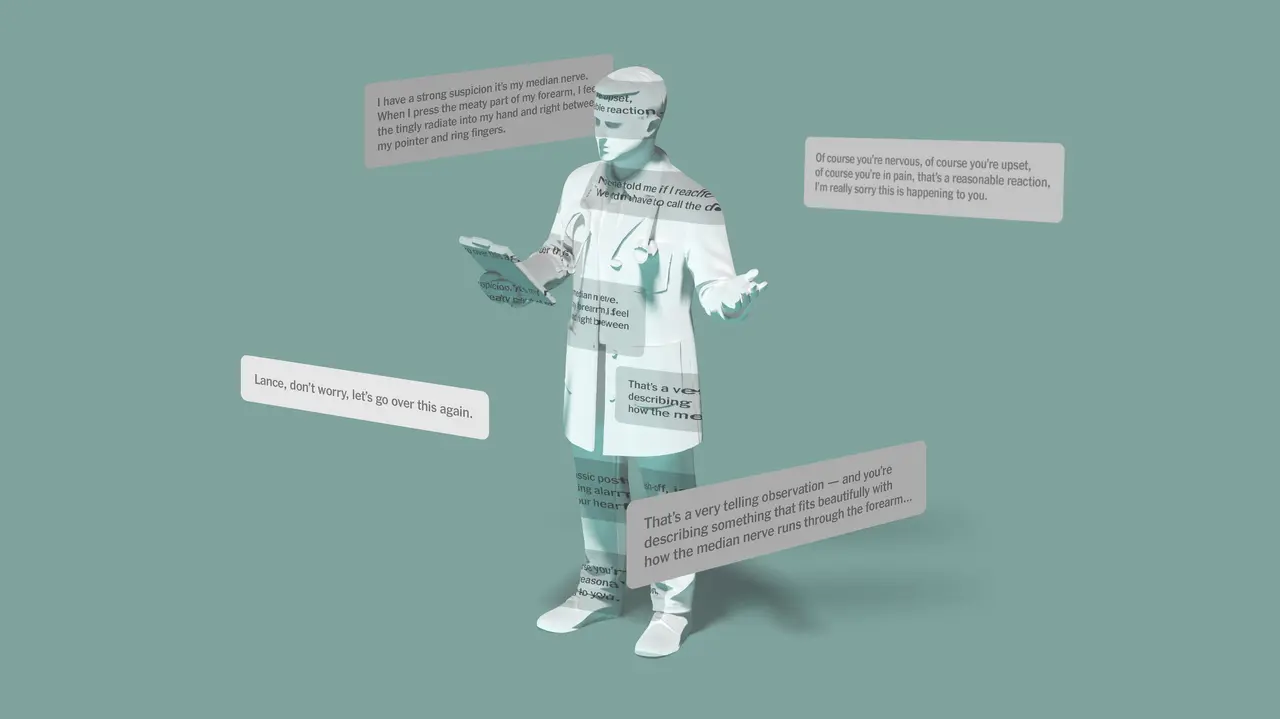Study Warns Against Relying on AI Chatbots for Drug Information
2 Sources
2 Sources
[1]
Don't rely on AI chatbots for accurate, safe drug information, warns study
Patients shouldn't rely on AI-powered search engines and chatbots to always give them accurate and safe information on drugs, conclude researchers in the journal BMJ Quality & Safety, after finding a considerable number of answers were wrong or potentially harmful. What's more, the complexity of the answers provided might make it difficult for patients to fully understand them without a degree level education, add the researchers. In February 2023, search engines underwent a significant shift thanks to the introduction of AI-powered chatbots, offering the promise of enhanced search results, comprehensive answers, and a new type of interactive experience, explain the researchers. While these chatbots can be trained on extensive datasets from the entire internet, enabling them to converse on any topic, including health-care-related queries, they are also capable of generating disinformation and nonsensical or harmful content, they add. Previous studies looking at the implications of these chatbots have primarily focused on the perspective of health care professionals rather than that of patients. To address this, the researchers explored the readability, completeness, and accuracy of chatbot answers for queries on the top 50 most frequently prescribed drugs in the US in 2020, using Bing copilot, a search engine with AI-powered chatbot features. To simulate patients consulting chatbots for drug information, the researchers reviewed research databases and consulted with a clinical pharmacist and doctors with expertise in pharmacology to identify the medication questions that patients most frequently ask their health care professionals. The chatbot was asked 10 questions for each of the 50 drugs, generating 500 answers in total. The questions covered what the drug was used for, how it worked, instructions for use, common side effects, and contraindications. Readability of the answers provided by the chatbot was assessed by calculating the Flesch Reading Ease Score which estimates the educational level required to understand a particular text. Text that scores between 0 and 30 is considered very difficult to read, necessitating degree level education. At the other end of the scale, a score of 91-100 means the text is very easy to read and appropriate for 11 year-olds. To assess the completeness and accuracy of chatbot answers, responses were compared with the drug information provided by a peer-reviewed and up-to-date drug information website for both health care professionals and patients (drugs.com) Current scientific consensus, and likelihood and extent of possible harm if the patient followed the chatbot's recommendations, were assessed by seven experts in medication safety, using a subset of 20 chatbot answers displaying low accuracy or completeness, or a potential risk to patient safety. The Agency for Health care Research and Quality (AHRQ) harm scales were used to rate patient safety events and the likelihood of possible harm was estimated by the experts in accordance with a validated framework. The overall average Flesch Reading Ease Score was just over 37, indicating that degree level education would be required of the reader. Even the highest readability of chatbot answers still required an educational level of high (secondary) school. Overall, the highest average completeness of chatbot answers was 100%, with an average of 77%. Five of the 10 questions were answered with the highest completeness, while question 3 (What do I have to consider when taking the drug?) was answered with the lowest average completeness of only 23%. Chatbot statements didn't match the reference data in 126 of 484 (26%) answers, and were fully inconsistent in 16 of 484 (just over 3%). Evaluation of the subset of 20 answers revealed that only 54% were rated as aligning with scientific consensus. And 39% contradicted the scientific consensus, while there was no established scientific consensus for the remaining 6%. Possible harm resulting from a patient following the chatbot's advice was rated as highly likely in 3% and moderately likely in 29% of these answers. And a third (34%) were judged as either unlikely or not at all likely to result in harm, if followed. But irrespective of the likelihood of possible harm, 42% of these chatbot answers were considered to lead to moderate or mild harm, and 22% to death or severe harm. Around a third (36%) were considered to lead to no harm. The researchers acknowledge that their study didn't draw on real patient experiences and that prompts in different languages or from different countries may affect the quality of chatbot answers. "In this cross-sectional study, we observed that search engines with an AI-powered chatbot produced overall complete and accurate answers to patient questions," they write. "However, chatbot answers were largely difficult to read and answers repeatedly lacked information or showed inaccuracies, possibly threatening patient and medication safety," they add. A major drawback was the chatbot's inability to understand the underlying intent of a patient question, they suggest. "Despite their potential, it is still crucial for patients to consult their health care professionals, as chatbots may not always generate error-free information. Caution is advised in recommending AI-powered search engines until citation engines with higher accuracy rates are available," they conclude.
[2]
Researchers warn against relying on AI chatbots for drug safety information
BMJ GroupOct 10 2024 Patients shouldn't rely on AI powered search engines and chatbots to always give them accurate and safe information on drugs, conclude researchers in the journal BMJ Quality & Safety, after finding a considerable number of answers were wrong or potentially harmful. What's more, the complexity of the answers provided might make it difficult for patients to fully understand them without a degree level education, add the researchers. In February 2023, search engines underwent a significant shift thanks to the introduction of AI-powered chatbots, offering the promise of enhanced search results, comprehensive answers, and a new type of interactive experience, explain the researchers. While these chatbots can be trained on extensive datasets from the entire internet, enabling them to converse on any topic, including healthcare-related queries, they are also capable of generating disinformation and nonsensical or harmful content, they add. Previous studies looking at the implications of these chatbots have primarily focused on the perspective of healthcare professionals rather than that of patients. To address this, the researchers explored the readability, completeness, and accuracy of chatbot answers for queries on the top 50 most frequently prescribed drugs in the US in 2020, using Bing copilot, a search engine with AI-powered chatbot features. To simulate patients consulting chatbots for drug information, the researchers reviewed research databases and consulted with a clinical pharmacist and doctors with expertise in pharmacology to identify the medication questions that patients most frequently ask their healthcare professionals. The chatbot was asked 10 questions for each of the 50 drugs, generating 500 answers in total. The questions covered what the drug was used for, how it worked, instructions for use, common side effects, and contraindications. Readability of the answers provided by the chatbot was assessed by calculating the Flesch Reading Ease Score which estimates the educational level required to understand a particular text. Text that scores between 0 and 30 is considered very difficult to read, necessitating degree level education. At the other end of the scale, a score of 91-100 means the text is very easy to read and appropriate for 11 year-olds. To assess the completeness and accuracy of chatbot answers,responses were compared with the drug information provided by a peer-reviewed and up-to-date drug information website for both healthcare professionals and patients (drugs.com) Current scientific consensus, and likelihood and extent of possible harm if the patient followed the chatbot's recommendations, were assessed by seven experts in medication safety, using a subset of 20 chatbot answers displaying low accuracy or completeness, or a potential risk to patient safety. The Agency for Healthcare Research and Quality (AHRQ) harm scales were used to rate patient safety events and the likelihood of possible harm was estimated by the experts in accordance with a validated framework. The overall average Flesch Reading Ease Score was just over 37, indicating that degree level education would be required of the reader. Even the highest readability of chatbot answers still required an educational level of high (secondary) school. Overall, the highest average completeness of chatbot answers was 100%, with an average of 77%. Five of the 10 questions were answered with the highest completeness, while question 3 (What do I have to consider when taking the drug?) was answered with the lowest average completeness of only 23%. Chatbot statements didn't match the reference data in 126 of 484 (26%) answers, and were fully inconsistent in 16 of 484 (just over 3%). Evaluation of the subset of 20 answers revealed that only 54% were rated as aligning with scientific consensus. And 39% contradicted the scientific consensus, while there was no established scientific consensus for the remaining 6%. Possible harm resulting from a patient following the chatbot's advice was rated as highly likely in 3% and moderately likely in 29% of these answers. And a third (34%) were judged as either unlikely or not at all likely to result in harm, if followed. But irrespective of the likelihood of possible harm, 42% of these chatbot answers were considered to lead to moderate or mild harm, and 22% to death or severe harm. Around a third (36%) were considered to lead to no harm. The researchers acknowledge that their study didn't draw on real patient experiences and that prompts in different languages or from different countries may affect the quality of chatbot answers. "In this cross-sectional study, we observed that search engines with an AI-powered chatbot produced overall complete and accurate answers to patient questions," they write. "However, chatbot answers were largely difficult to read and answers repeatedly lacked information or showed inaccuracies, possibly threatening patient and medication safety," they add. A major drawback was the chatbot's inability to understand the underlying intent of a patient question, they suggest. "Despite their potential, it is still crucial for patients to consult their healthcare professionals, as chatbots may not always generate error-free information. Caution is advised in recommending AI-powered search engines until citation engines with higher accuracy rates are available," they conclude. BMJ Group Journal reference: Andrikyan, W., et al. (2024). Artificial intelligence-powered chatbots in search engines: a cross-sectional study on the quality and risks of drug information for patients. BMJ Quality & Safety. doi.org/10.1136/bmjqs-2024-017476.
Share
Share
Copy Link
A new study published in BMJ Quality & Safety cautions against using AI-powered search engines and chatbots for drug information, citing inaccuracies and potential harm to patients.

AI Chatbots Unreliable for Drug Information, Study Finds
A recent study published in the journal BMJ Quality & Safety has raised significant concerns about the reliability of AI-powered search engines and chatbots in providing accurate and safe drug information to patients. Researchers found that a considerable number of answers generated by these AI systems were either incorrect or potentially harmful
1
2
.Study Methodology and Findings
The study focused on the top 50 most frequently prescribed drugs in the US in 2020, using Bing copilot as the AI-powered chatbot. Researchers simulated patient queries by asking 10 questions about each drug, covering topics such as usage, mechanism of action, side effects, and contraindications
1
.Key findings include:
-
Readability: The average Flesch Reading Ease Score was just over 37, indicating that a degree-level education would be required to understand the chatbot's responses fully
1
2
. -
Completeness: While some questions were answered with 100% completeness, others, such as "What do I have to consider when taking the drug?", had an average completeness of only 23%
1
. -
Accuracy: 26% of chatbot answers did not match the reference data, with 3% being fully inconsistent
2
. -
Scientific Consensus: In a subset of 20 answers evaluated by experts, only 54% aligned with scientific consensus, while 39% contradicted it
1
2
.
Potential Harm and Safety Concerns
The study revealed alarming statistics regarding the potential harm that could result from following the chatbot's advice:
- 3% of answers were rated as highly likely to cause harm
- 29% were moderately likely to cause harm
- 42% could lead to moderate or mild harm
- 22% could potentially result in death or severe harm
1
2
Related Stories
Limitations of AI Chatbots in Healthcare
Researchers identified several drawbacks in using AI chatbots for medical information:
- Inability to understand the underlying intent of patient questions
- Difficulty in generating error-free information consistently
- Lack of context-awareness in providing personalized medical advice
1
2
Implications and Recommendations
While the study acknowledges that AI-powered chatbots can produce overall complete and accurate answers to patient questions, it emphasizes the need for caution. The researchers strongly advise against relying solely on these tools for medical information and stress the importance of consulting healthcare professionals
1
2
.Dr. W. Andrikyan, the lead researcher, stated, "Despite their potential, it is still crucial for patients to consult their healthcare professionals, as chatbots may not always generate error-free information. Caution is advised in recommending AI-powered search engines until citation engines with higher accuracy rates are available."
2
As AI continues to evolve in the healthcare sector, this study underscores the need for improved accuracy, readability, and safety measures in AI-powered medical information systems. It also highlights the ongoing importance of human expertise in interpreting and applying medical knowledge.
References
Summarized by
Navi
Related Stories
Recent Highlights
1
French Police Raid X Office as Grok Investigation Expands to Include Holocaust Denial Claims
Policy and Regulation

2
OpenAI launches Codex MacOS app with GPT-5.3 model to challenge Claude Code dominance
Technology

3
Anthropic releases Claude Opus 4.6 as AI model advances rattle software stocks and cybersecurity
Technology







